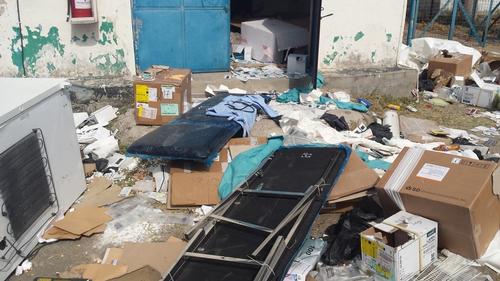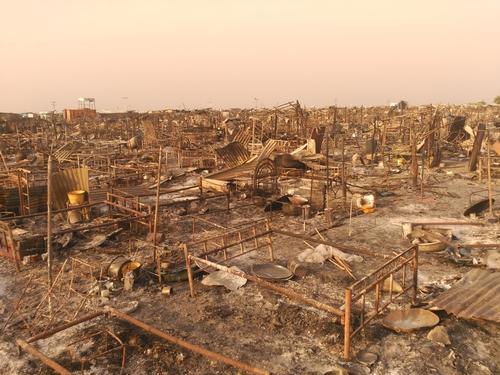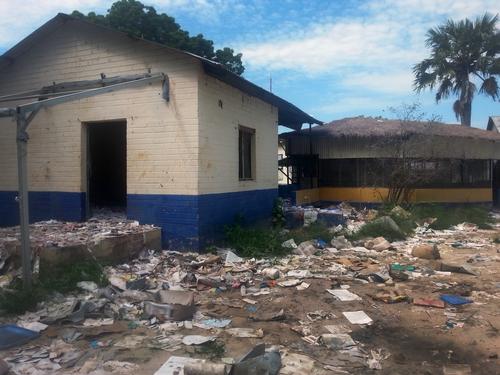When heavy fighting broke out and bullets started flying around the Médecins Sans Frontières (MSF) medical centre in Pibor, South Sudan, Dr. Marisel Mendez was treating a two-year-old boy in the pediatric ward, a concrete room with six hospital beds and cartoon drawings on the walls to make it a welcoming space for children.
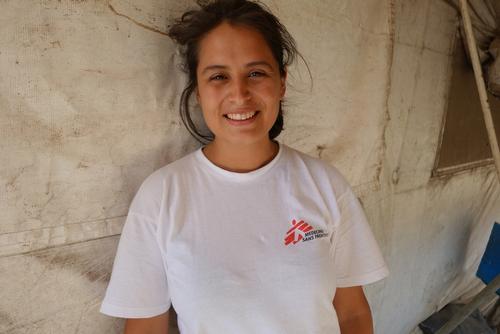
The young child was reliant on the oxygen machine and intravenous drip that Marisel was attending to for his survival. He had severe malaria, was extremely anemic and struggled to breathe. While caring for the boy, Marisel heard the first gunshots in the distance but stayed focused on her patient.
As the sound of gunshots grew closer and closer, Marisel saw through the window that staff and patients were beginning to run towards the designated safe area of the MSF compound. Yet still Marisel stayed, sitting on the floor of the ward beside the child’s mother to stay low while attending to the sick child. She remained as long as possible, but eventually it became clear it was getting too dangerous to stay. Marisel also ran to the designated safe area, arriving as the first sounds of bullets whizzing through the air could be heard.
Forced to leave patients behind
With the increasing sound of heavy weaponry and a real risk of being caught right in the middle of crossfire, the MSF team moved out to the UN base on the other side of town. As the MSF team left, some patients who managed to make it to the front gate of the medical centre were able to jump into the vehicles that whisked the team away, but the two year old boy Marisel had been treating with was not among them.
A week later, reflecting on the horrifying events of that day, the feeling that stays most with Marisel is the gut-wrenching knowledge that the team had no choice but to leave patients behind in the middle of the chaos. “For me, that was truly the hardest moment.”
Fighting continued in Pibor for three days, from 23 to 25 February, but as soon as the MSF team arrived in the UN compound they began supporting the treatment of wounded patients. One of them was a six-year-old boy, hit by a bullet in the stomach. Despite the best efforts of the medics who poured their energy into saving him, the wound was too severe and the child died the following day. The thirty-five other patients wounded in the fighting all survived.
A scene of chaos and destruction
As Marisel and the other MSF nurses, midwives and logisticians were scrambling to provide life-saving care, the MSF medical centre that has served the community for over 10 years was being ransacked and looted to the point of being totally unusable.
When the fighting subsided, MSF teams returned to a scene of chaos and destruction. Fans were ripped from the ceiling in the patients’ wards, electronic equipment and fuel were taken and all the therapeutic food used for treating malnourished children was stolen. Anything of value that was not bolted to the floor was carried off, even the hospital bed belonging to the two-year-old child that Marisel had been treating when the violence broke out.
Bullet casings were found throughout the compound. Life-saving medicines and essential records were strewn everywhere, while cabinets and shelves were tossed and emptied in a frenzy of theft and disrespect for medical care.
One latrine for 350 people
The MSF medics at the UNMISS compound continued working, aware of rumours of looting at the health centre, but oblivious to the real extent of the damage. In any case, their priority was the patients in front of them needing treatment. In the days immediately following the fighting, a number of pregnant women entered premature labour and the MSF doctor and midwife treated them to stave off early birth, which can result in complications and even the death of the child.
Presently in the UN compound, women and children make up most of the two thousand people taking shelter. They have only one latrine for every 350 people, less than 1.5 liters of water per person per day, and no food distributions. But people stay here out of fear, and for some, because they know they have nothing left at home.
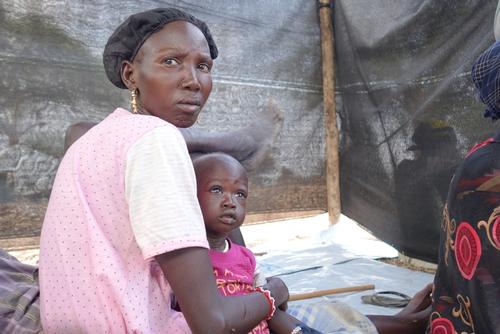
Forced to beg for shelter
“All I was able to take with me was one jerry can,” says Mary, sitting in the waiting area of the MSF clinic that was hastily set up to provide basic medical care. She holds her sick two-year-old son David in her arms as she explains that her house has been burnt and she had to beg for plastic sheeting while inside the camp so that her family of six could have any shelter at all.
With her house in town destroyed and all her possessions stolen, her family’s future is not clear. “We have nothing to build a new house with,” she says. Nearby, a woman named Yayo shares a similar predicament. She has brought her two-year-old daughter, Juang, to the clinic to be treated for diarrhea caused by drinking water from the river out of desperation. Though Yayo’s house is still intact, everything inside was looted, including all of their clothes and their last bag of sorghum: the only food they had.
“People in the bush are terrified”
Pibor is a town of about 40,000 people but when the fighting started thousands of people fled, not only into the UN compound, but also into the bush. Two days ago, a child came to the MSF clinic in the UN protection site with a snake bite on his ankle. The wound was necrotic and MSF doctor Henryk Bonte helped remove the infected flesh to prevent further infection. The boy had been hiding in the bush for several days since the snake bit him, too afraid to come back to town and look for help. Two other children arrived after hiding in the bush; they had been suffering from severe convulsions for days before their families felt safe enough to bring them in for medical attention. “People in the bush are terrified,” says Bonte.
The cause of that fear can be seen throughout town. Pibor is now heavily militarized and weapons are everywhere. Large swathes of houses are burnt to the ground. A few non-flammable items stand out from the blackness of charred foundations like artifacts.
Pibor used to be the biggest market town for hundreds of kilometers and many people relied on trade to earn their livelihoods. Now, almost every corrugated steel shop in what used to be the region’s commercial hub is gutted or burned to the ground. Behind one looted shop, the charred, skeletal remains of a person killed in the fighting still lies in the dirt, surrounded by burnt and collapsed structures.
“I worried for them, and it makes me so happy to know they are safe and that they are alive.”
The medical and humanitarian needs in this context are immense. Back in the UN compound, Marisel is tending to another child, a one-year-old girl who is recovering from a complicated case of malaria and who is now also severely severely malnourished as a result. Marisel prescribes the child treatment for malaria as well as antibiotics to prevent infection and 14 sachets of Plumpy’Nut, a peanut-based therapeutic food which helps children regain their weight. The infant’s mother listens attentively as Marisel explains how to feed the child small dabs of the paste, just a little at a time on her finger to prevent the child from vomiting.
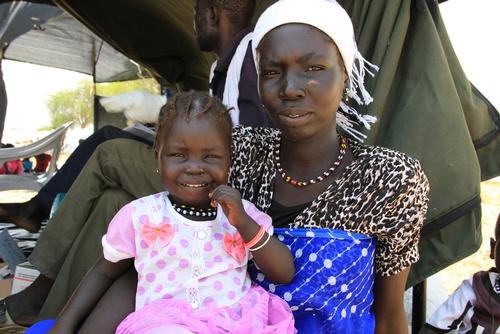
MSF is treating 140 patients in Pibor every day and the medical team is working urgently to resume some level of emergency response in the looted health centre. The medical team’s focus is on immediate, life-saving care.
But in spite of the hardship, there are still moments of celebration. For Marisel, those moments come especially when she is reunited with patients who were under her care at the MSF healthcare centre when the fighting started. Several have already come to the MSF clinic in the UN camp for medical care. In each case there is feeling of jubilation, especially with the mothers. “They give me a big hug when they arrive. I think for them it makes a difference that they know we stayed and we are still here for their children,” she says. “For me, it’s just such a relief. I worried for them, and it makes me so happy to know they are safe and that they are alive.”
But Marisel still thinks about the two-year-old boy she stayed with as the fighting started. “I hope he will also come back,” she says.



